
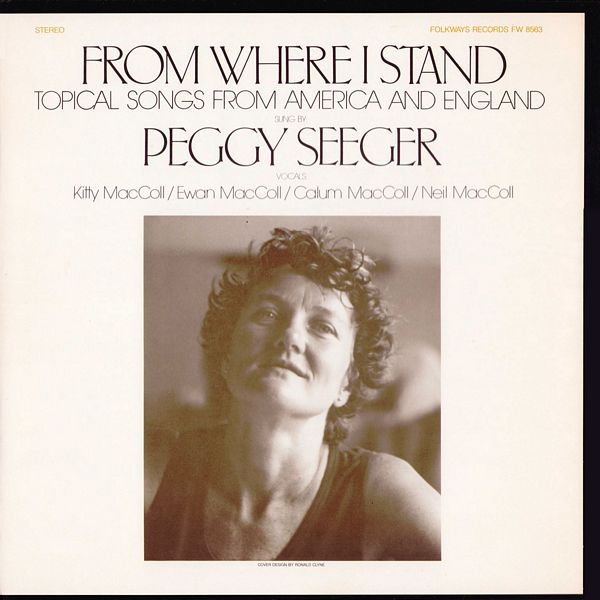 |
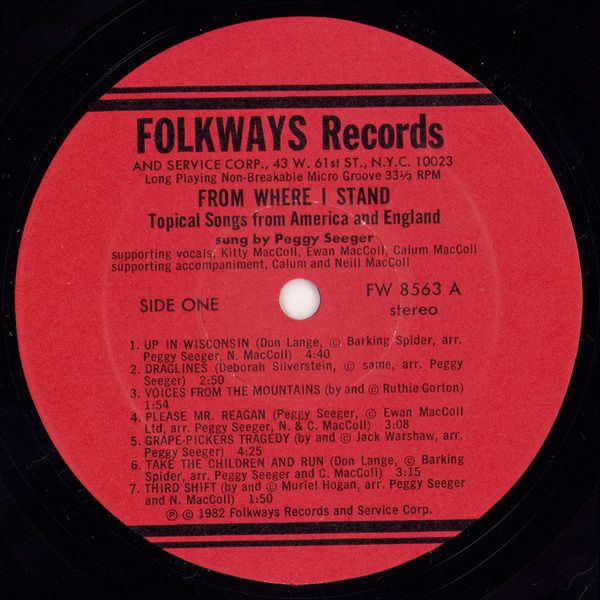
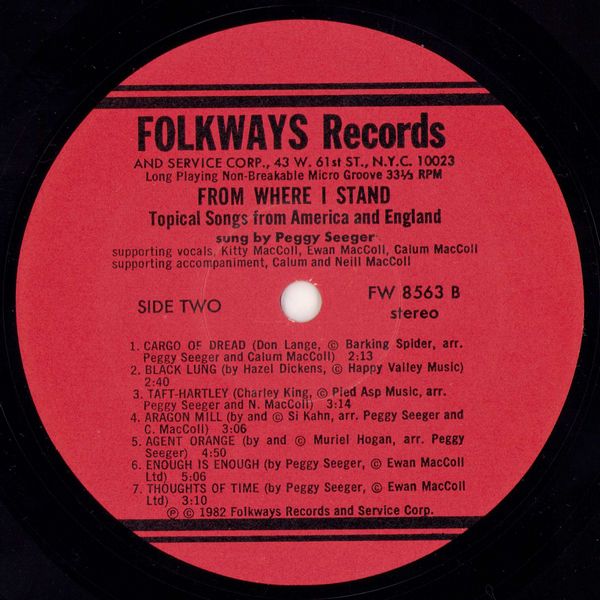
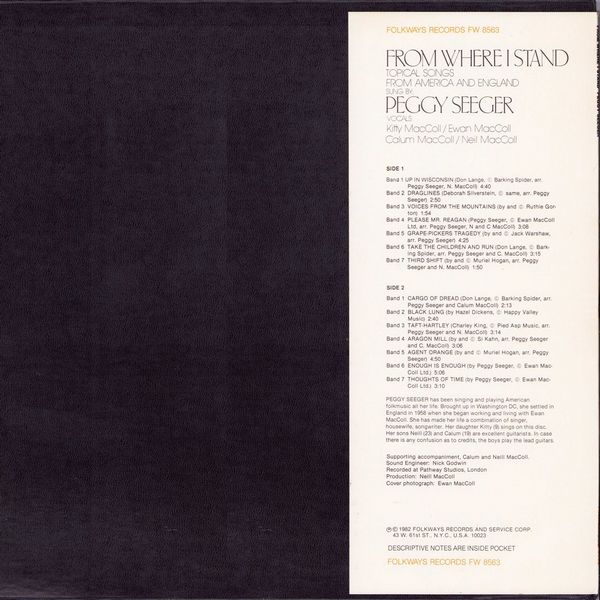
|
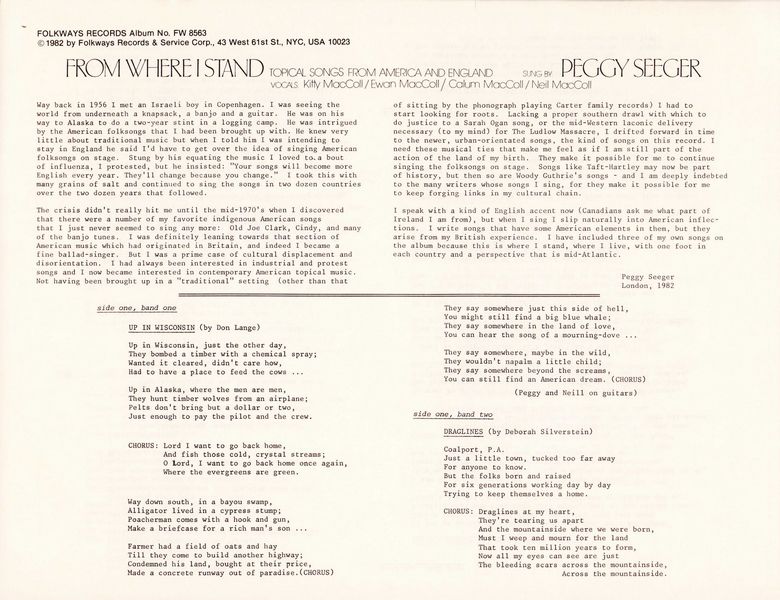
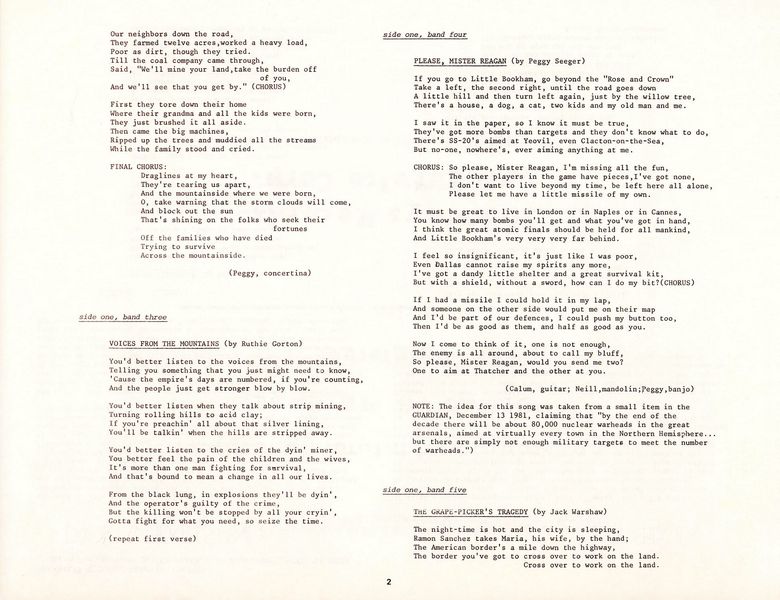
|
| more images |
Sleeve Notes
PEGGY SEEGER has been singing and playing American folkmusic all her life. Brought up in Washington DC, she settled in England in 1958 when she began working and living with Ewan MacColl. She has made her life a combination of singer, housewife, songwriter. Her daughter Kitty (9) sings on this disc. Her sons Neill (23) and Calum (19) are excellent guitarists. In case there is any confusion as to credits, the boys play the lead guitars.
Way back in 1956 I met an Israeli boy in Copenhagen. I was seeing the world from underneath a knapsack, a banjo and a guitar. He was on his way to Alaska to do a two-year stint in a logging camp. He was intrigued by the American folksongs that I had been brought up with. He knew very little about traditional music but when I told him I was intending to stay in England he said I'd have to get over the idea of singing American folksongs on stage. Stung by his equating the music I loved to a bout of influenza, I protested, but he insisted: "Your songs will become more English every year. They'll change because you change." I took this with many grains of salt and continued to sing the songs in two dozen countries over the two dozen years that followed.
The crisis didn't really hit me until the mid-1970's when I discovered that there were a number of my favorite indigenous American songs that I just never seemed to sing any more: Old Joe Clark, Cindy, and many of the banjo tunes. I was definitely leaning towards that section of American music which had originated in Britain, and indeed I became a fine ballad-singer. But I was a prime case of cultural displacement and disorientation. I had always been interested in industrial and protest songs and I now became interested in contemporary American topical music. Not having been brought up in a "traditional" setting (other than that of sitting by the phonograph playing Carter family records) I had to start looking for roots. Lacking a proper southern drawl with which to do justice to a Sarah Ogan song, or the mid-Western laconic delivery necessary (to my mind) for The Ludlow Massacre, I drifted forward in time to the newer, urban-orientated songs, the kind of songs on this record. I need these musical ties that make me feel as if I am still part of the action of the land of my birth. They make it possible for me to continue singing the folksongs on stage. Songs like Taft-Hartley may now be part of history, but then so are Woody Guthrie's songs — and I am deeply indebted to the many writers whose songs I sing, for they make it possible for me to keep forging links in my cultural chain.
I speak with a kind of English accent now (Canadians ask me what part of Ireland I am from), but when I sing I slip naturally into American inflections. I write songs that have some American elements in them, but they arise from my British experience. I have included three of my own songs on the album because this is where I stand, where I live, with one foot in each country and a perspective that is mid-Atlantic.
Peggy Seeger
London, 1982